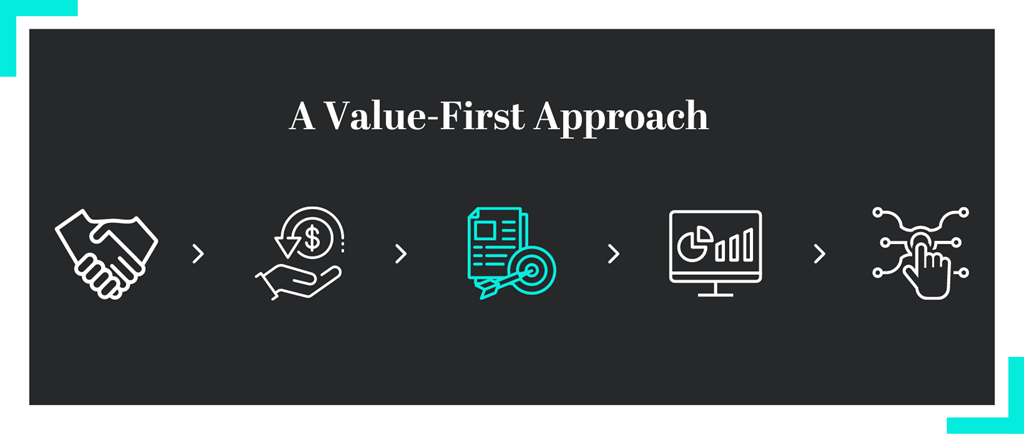Creating your own Digital Value Framework
Dom Graveson

In the third article in the series titled 'A Value-First Approach', Dom Graveson, Netcel's Director of Strategy & Experience explores how you can create a Value Framework that's uniquely reflective of your business or organisations needs.
A Value Framework that works for you
This definition of value frameworks works most successfully when developed as part of a process with the client – often best in 1- 1 conversations to develop a shared understanding of what is relevant to quantify, and the expectations for scale and schedule of these benefits. These should be based on available data and insights where possible, rather than assumption and estimation, or the loudest voice in the room. This takes time and a process of building trust as often these aren’t clear initially.
From a practical perspective, Value Frameworks work best when built on a OKR approach - that is a clear definition of the ambitions sought for audience, and organisation or business (the Outcomes part), and then a definition of the measures we can use to indicate progress towards realizing that ambition (the Key Results part).
It makes a lot of sense to take an adaptive and flexible approach to defining this framework - expect change and adjustment to be necessary throughout. You shouldn’t expect to get all of it right first time. One of the biggest hidden benefits of committing to iterative experimentation and improvement of digital products and experiences, is the constant learning - and that learning should extend to discovery of the right things to measure as indicators of movement towards your goals. For example, traffic isn’t everything, so how can you better measure the quality of your visitors, the predisposition to get to the all-important transactional goal? These things may not be immediately obvious, and fixing them at the start and not regularly reviewing based on emerging new insights leave opportunities unrealised and introduces risk to eventual and sustained success.
A framework for digital value can be a sprawling beast that touches all kinds of parts of the organisation from customer experience (CX), insights and data, technology platforms, IT strategy and people and processes. It can appear daunting and expansive, and it is important to stay focused. What is the Value Framework's main objective? Is it to prove value and ROI of an allocated digital marketing budget? To encourage further digital investment for the future? To grow and validate cooperation and adoption across other departments? Usually, it is a combination of these.
Read the previous articles in this series here: What is Digital Value and Defining your Digital Value
Read the next article in this series: Unlocking Success Metrics: Measuring Digital Value with OKRs